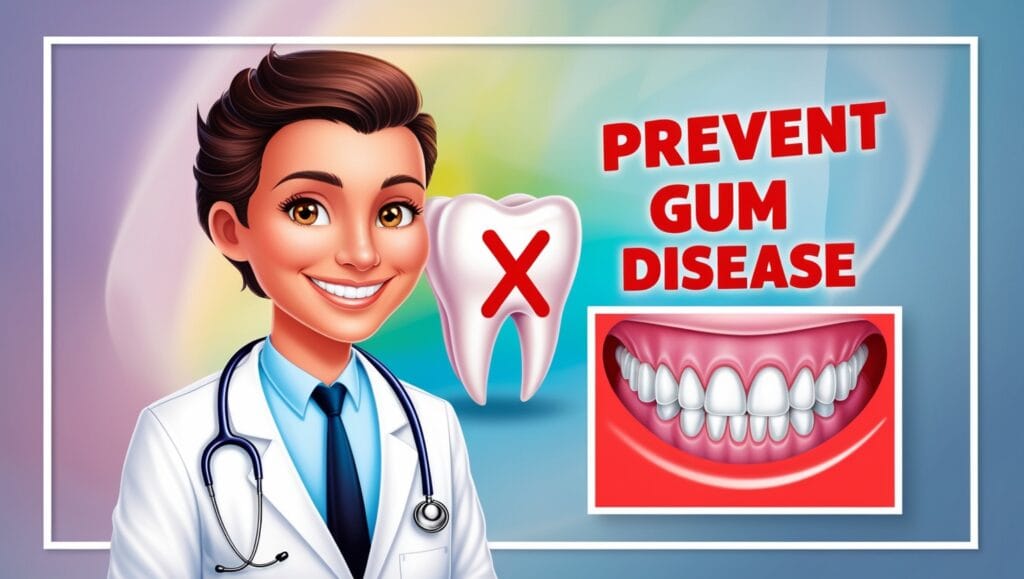Top Tips to Prevent Gum Disease and Gingivitis for Healthier Gums
September 17, 2024 | by Vladimir Unguru

Have you ever noticed bleeding when you brush your teeth or experienced sore, inflamed gums? These could be early signs of gum disease and gingivitis. While it’s a common issue, many people underestimate its seriousness. Understanding effective treatments can help you maintain your oral health and prevent more severe conditions down the line.
Introduction
Gum disease, including gingivitis, is an inflammation of the gums that can lead to serious oral health problems if untreated. Though it starts with minor symptoms, it can escalate to more severe stages, leading to tooth loss and other complications. Fortunately, there are many effective treatments available that can help manage and reverse the effects of gum disease.
This article will take you through various treatments, from daily habits to professional interventions that can help protect your gums, prevent gum disease, and overall oral health.
What is Gum Disease?
Gum disease, or periodontal disease, is an infection of the tissues that hold your teeth in place. It’s usually caused by poor oral hygiene, leading to the buildup of plaque—a sticky film of bacteria—on the teeth. If plaque is not removed, it can harden and form tartar, leading to further infection.
Types of Gum Disease
There are two primary stages of gum disease:
- Gingivitis: The earliest stage of gum disease, characterized by redness, swelling, and bleeding of the gums. It is generally reversible with good oral hygiene.
- Periodontitis: A more severe form of gum disease that affects the bone supporting the teeth. It requires more intensive treatment and can lead to tooth loss if left untreated.
Causes and Risk Factors
Understanding the causes and risk factors of gum disease can help in its prevention and treatment. The primary cause is bacterial plaque buildup, but other factors can contribute as well.
Common Causes
- Poor Oral Hygiene: Inadequate brushing and flossing lead to plaque buildup.
- Smoking: Tobacco use is a significant risk factor for gum disease.
- Hormonal Changes: Changes during pregnancy, menstruation, and menopause can make gums more sensitive.
- Medical Conditions: Diseases like diabetes can increase the risk.
- Medications: Certain medications can reduce saliva flow, affecting oral health.
- Genetics: A predisposition to gum disease can be inherited.
Risk Factors
- Age
- Poor nutrition
- Stress
- Obesity
- Teeth grinding or clenching
Symptoms of Gum Disease and Gingivitis
Identifying the symptoms early can lead to more effective treatment. Some signs are subtle, while others are more noticeable.
Common Symptoms
- Swollen or Puffy Gums: Often red and tender to the touch.
- Bleeding Gums: Especially noticeable when brushing or flossing.
- Bad Breath: Persistent bad taste or odor in the mouth.
- Receding Gums: Gums pulling away from the teeth.
- Loose Teeth: In severe cases, teeth can become loose or fall out.

How to Prevent Gum Disease
Preventing gum disease is simpler than treating it. Effective preventative measures involve a combination of good dental hygiene practices and lifestyle changes.
Daily Dental Hygiene
- Brushing: Brush your teeth twice a day using a fluoride toothpaste.
- Flossing: Floss daily to remove plaque from between your teeth.
- Mouthwash: Use an antibacterial mouthwash to reduce plaque-causing bacteria.
Regular Dental Check-ups
Regular visits to your dentist can catch early signs of gum disease before they worsen. Most dentists recommend bi-annual check-ups and cleanings.
Healthy Diet
A balanced diet can contribute significantly to oral health. Foods rich in vitamin C and D, calcium, and antioxidants can help maintain healthy gums.
Lifestyle Choices
- Quit Smoking: Reduces the risk significantly.
- Reduce Stress: High stress levels can weaken your immune system, making it harder to fight off infections.
Home Remedies
While home remedies should not replace professional care, they can be helpful alongside prescribed treatments.
Salt Water Rinse
A simple salt water rinse can help reduce inflammation and fight infection. Mix half a teaspoon of salt in a glass of warm water and rinse your mouth for about 30 seconds.
Aloe Vera Gel
Applying aloe vera gel to inflamed gums can provide soothing relief. Ensure you are using pure aloe vera and apply it directly to the gums.
Oil Pulling
An ancient practice where you swish oil (like coconut or sesame) in your mouth for 15-20 minutes. It can help reduce plaque and bacteria.
Green Tea
Green tea has anti-inflammatory properties. Drinking it or using it as a mouth rinse can help improve gum health.
Professional Treatments
If home remedies and preventive measures aren’t sufficient, professional treatments are necessary. Your dentist or hygienist can offer several effective treatments.
Scaling and Root Planing
A deep cleaning procedure that removes plaque and tartar from below the gum line. Scaling clears the surface of teeth, while root planing smooths the roots to help gums reattach to teeth.
Antibiotics
Antibiotics can be prescribed to control bacterial infection. They can be in the form of mouth rinses, gels, or oral tablets.
Surgical Treatments
In more advanced cases, surgical options may be necessary:
- Flap Surgery: Lifting back the gums to remove tartar and then suturing them back in place.
- Bone and Tissue Grafts: Rebuilding lost bone or gum tissue using grafts.
Laser Therapy
Using laser technology to remove infected tissue and reduce the size of the pockets between teeth and gums. It’s less invasive and promotes faster healing.
Comparison of Treatments
To understand which treatment might be best for you, it can be helpful to compare them side by side.
| Treatment Type | Pros | Cons |
|---|---|---|
| Scaling and Root Planing | Effective for early to moderate gum disease | Can be uncomfortable, requires multiple visits |
| Antibiotics | Reduces bacteria quickly, easy to use | May not be effective alone for severe cases, potential for antibiotic resistance |
| Surgical Treatments | Highly effective for severe cases | Invasive, longer recovery time |
| Laser Therapy | Minimally invasive, faster recovery | Can be expensive, not suitable for all cases |
Post-Treatment Care
After receiving treatment for gum disease or gingivitis, it’s crucial to follow post-treatment care instructions to prevent recurrence.
Oral Care Routine
Continue with good oral hygiene practices—brushing, flossing, and using mouthwash. Your dentist may recommend special tools like interdental brushes or a water flosser.
Dietary Changes
Avoid sugary and acidic foods that can promote plaque buildup. Focus on eating a balanced diet rich in vitamins and minerals.
Regular Check-ups
Regular dental visits are more critical after treatment to monitor your condition and catch any early signs of recurrence.
Conclusion
Gum disease and gingivitis might seem daunting, but they are manageable and often reversible with the right treatments and preventive measures. From daily oral care routines to professional interventions, numerous strategies can help you maintain your gum health. Remember, early detection is key to effective treatment, so don’t ignore the warning signs.
Frequently Asked Questions
How often should I visit the dentist if I have gum disease?
Generally, you should visit your dentist every three to six months for check-ups and cleanings if you have gum disease. Your dentist will provide a personalized schedule based on your specific condition.
Can gum disease be cured completely?
Gum disease can be managed and its effects can often be reversed, especially if caught early. However, advanced stages may require ongoing management to prevent further progression.
Is gingivitis contagious?
The bacteria that cause gingivitis can be passed between individuals through saliva, making it important to maintain good oral hygiene and avoid sharing utensils with someone who has gingivitis.
Are natural remedies effective for treating gum disease?
Natural remedies can help alongside professional treatment but should not replace medical advice. Always consult with your dentist before trying new treatments.
Can stress contribute to gum disease?
Yes, high stress levels can weaken the immune system, making it harder to fight off infections, including those in the gums.
Listening to your body and maintaining good oral hygiene can go a long way in preventing and treating gum disease and gingivitis. Regular dental visits and a healthy lifestyle are crucial components of oral health, ensuring that your bright smile lasts a lifetime.
RELATED POSTS
View all



